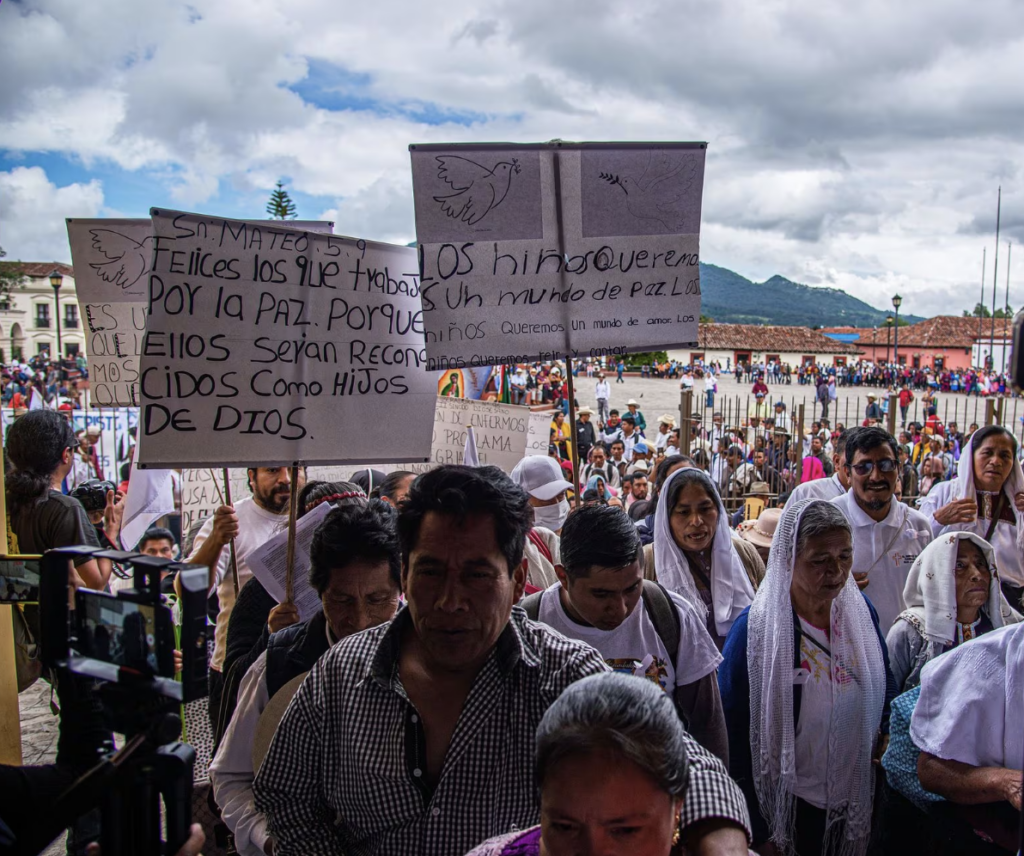
09/27/14 (written by cmolzahn) — A prominent founding member of Michoacán’s self-defense groups (grupos de autodefensa) has been allowed to rejoin the rural police force of Michoacán (Fuerza Rural) after being suspended temporarily for allegedly appearing in a video with Knights Templar Organization (KTO) leader Servando Gómez Martínez, “La Tuta.” Luis Antonio Torres González, known commonly as “El Americano” because he was born in the United States and lived much of his life in El Paso, Texas, was formerly the leader of the autodefensa in Buenavista Tomatlán, Michoacán before joining the rural police force in May. He was one of the signatories to the disarmament pact between the federal government and autodefensa leaders in January. Torres González has traded accusations with fellow autodefensa leader Hipólito Mora of having ties to the KTO.
El Americano was removed from his commander duties in Buenavista Tomatlán in late August on the request from Michoacán’s Attorney General’s Office (Procuraduría General de Justicia del Estado, PGJE), as it opened an investigation into his suspected ties with organized crime. It seemed an unlikely charge at the time, given his history. Torres was kidnapped in 2012 when he was vacationing with his family in Michoacán; his family sold property to pay the $150,000 (USD) ransom, which he says compelled him to join the autodefensa movement; and on September 12, Michoacán’s Attorney General confirmed that it was not El Americano appearing in the video with La Tuta, but rather a KTO leader operating in Tumbiscatío.
Meanwhile, the rural police forces, in conjunction with federal forces, have intensified the search for La Tuta, concentrating efforts in the Tierra Caliente, the western mountain and coastal regions of Michoacán. There were reportedly around 250 federally-certified members of the Federal Police (Policía Federal, PF) involved in the deployment, valued for their deep knowledge of the regions involved, as well as the workings of the KTO. Alberto Gutiérrez, rural police commander, said that they have found caves and other hiding places showing evidence of La Tuta’s presence there, and that they believe that he is moving alone. La Tuta is believed to be hiding in the area containing the municipalities of Arteaga, Calcomán, Tumbiscatio, Lázaro Cárdenas, Coahuayana and Aquila, which has easy access to Colima and Guerrero, and is the least populated region of Michoacán, making the hunt for him that much more complicated. Moreover, La Tuta is known not to use a cell phone, and has been seen in videos with a short-range radio. Nevertheless, authorities say that they are close to capturing him.
Moreover, the KTO’s operational capacity has been “highly restricted,” according to National Security Commissioner Monte Alejandro Rubido though he acknowledged that La Tuta still maintains some local support in parts of Tierra Caliente. For its part, the Federal Police also has a strong presence there to keep him from capitalizing on that support. Meanwhile, reports indicate that such capacities of the Rural Force and the Citizens’ Force (Fuerza Ciudadana) have improved as of late. Aside from the high-caliber weapons they had as autodefensas, they are also equipped with night-vision goggles and modern vehicles, many with off-road capacity. They also enjoy a monthly salary of between $8,000 and $12,000 pesos ($595-$893 USD), as well as benefits including social security, and housing and education stipends, according to statements from Alfredo Castillo, the federal Michoacán security commissioner in June. The Citizens’ Force, which coordinates with the PGJE, and includes intelligence and investigatory functions, has a starting wage of $15,000 pesos, as compared with $8,000 pesos for the Rural Force. Members of the latter can aspire to join the ranks of the former, given that they meet certain requirements. Bernardo Trellez Duarte, head of the State Public Security Council (Consejo Estatal de Seguridad Pública, CESO), said that recruitment has spread to the public and private universities in the state dedicated to studying the security situation in Michoacán.
Sources:
Martínez, Dalia. “Salarios para policía Rural, entre 8 y 21 mil pesos.” El Universal. June 10, 2014.
Notimex. “Notifican a El Americano salida de Fuerza Rural.” El Universal. August 27, 2014.
Quadratín. “No es ‘El Americano’ quien aparece con ‘La Tuta’: PGJE.” Milenio. September 12, 2014.




